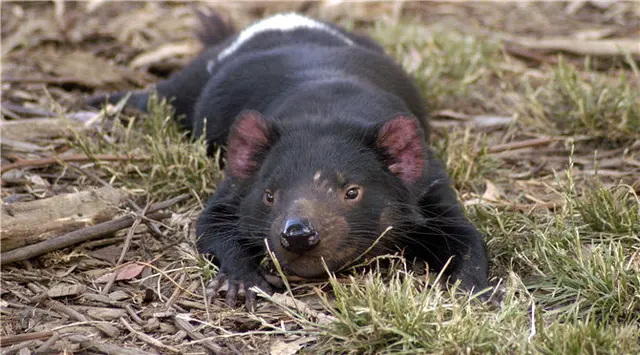Australian and British researchers said Monday they have identified a second transmissible cancer in Tasmanian devils, iconic marsupial carnivores that are only found in the wild on the Australian island state of Tasmania.
The cancer causes facial tumors that largely resemble those caused by a previously identified Tasmanian devil transmissible cancer but are genetically distinct, the researchers reported in the U.S. journal Proceedings of the National Academy of Science.
Transmissible cancers are those that can spread between individuals by the transfer of living cancer cells, a phenomenon considered extremely rare in nature. Besides Tasmanian devils, such transmissible cancers have only been found in dogs and soft-shell clams.
The Tasmanian devil transmissible cancer, which affects the face and mouth and is spread between the animals by biting, was first observed in 1996.
The cancer has since spread through most of Tasmania and has triggered widespread devil population declines. The species was listed as endangered by the International Union for Conservation of Nature in 2008.
In the new study, a team led by researchers from Australia's University of Tasmania and Britain's University of Cambridge reported the discovery of a second transmissible cancer in Tasmanian devils, which are about the size of a small dog with a reputation for ferocity as they frequently bite each other during mating and feeding interactions.
"The second cancer causes tumors on the face that are outwardly indistinguishable from the previously-discovered cancer," said first author Ruth Pye from the Menzies Institute for Medical Research at the University of Tasmania. "So far it has been detected in eight devils in the south-east of Tasmania."
Senior author Elizabeth Murchison from the Department of Veterinary Medicine at the University of Cambridge said the new discovery raises questions about whether transmissible cancers arise extremely rarely in nature.
"Previously, we thought that Tasmanian devils were extremely unlucky to have fallen victim to a single runaway cancer that emerged from one individual devil and spread through the devil population by biting," Murchison said.
"However, now that we have discovered that this has happened a second time, it makes us wonder if Tasmanian devils might be particularly vulnerable to developing this type of disease, or that transmissible cancers may not be as rare in nature as we previously thought."
 简体中文
简体中文



